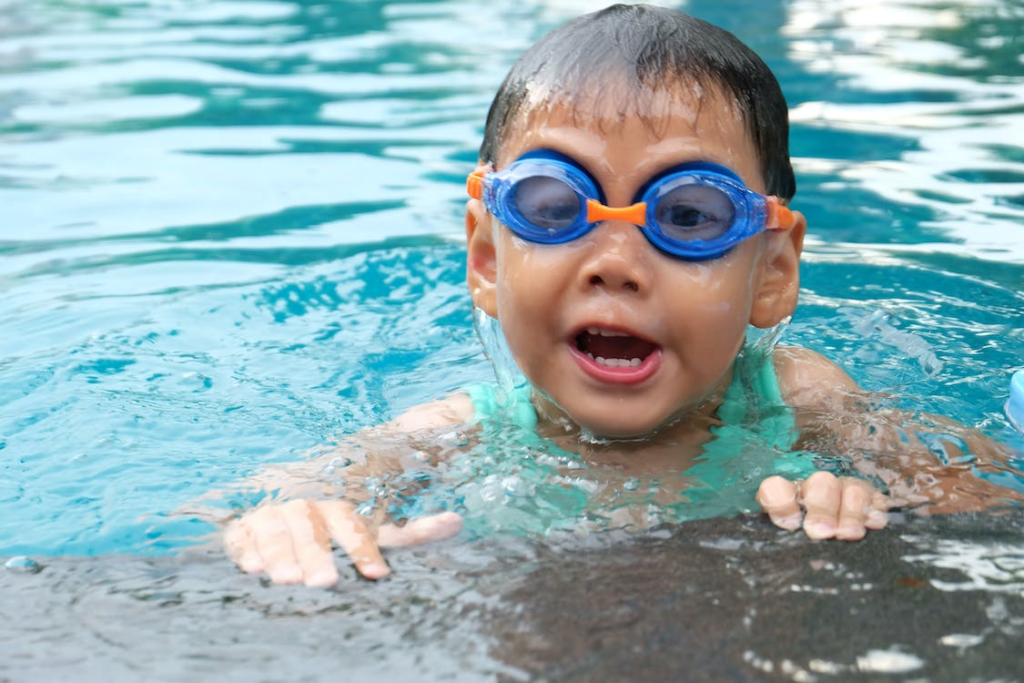
Immersed in the gentle embrace of water, a child’s laughter echoes around the pool. This is a scene from an early childhood swim program, a place where fun intersects with learning and children are introduced to the world of water in a safe and engaging way. These programs are more than just a means to an end, they are an exploration of joy, buoyancy, and freedom.
They offer a unique sensory experience that fosters physical agility, cognitive development, and a lifelong love for swimming. With each splash, paddle, and kick, children learn new skills, uncover their potential, and sow the seeds of water confidence. Dive in with us as we explore the fun and play inherent in early childhood swim programs.
Water Games
These are the highlight of any swim lesson! Games such as ‘Duck, Duck, Splash’, ‘Treasure Hunt’, or ‘Ring Around the Rosie’ make learning fun, encouraging children to dive, float, and move in the water. In general, if you are having trouble finding the right way how to choose a swim school, just look for one that offers a wide variety of activities such as water games and other engaging play-based activities. A lot of children’s swim schools are built around the idea of play and offer an array of exciting water games that ensure everyone is having a great time. And while this may seem like just an entertaining way to spend a day at the pool, these activities are actually essential for helping children develop vital aquatic skills such as buoyancy and breath control.
Sensory Play
Playing with water toys, colorful balls, and foam noodles stimulates a child’s senses and provokes curiosity while improving hand-eye coordination. These activities can be both educational and fun, combining the best of both worlds. They also provide a great opportunity for parents to connect with their children on an emotional level, as playing together in the pool helps create meaningful memories that will last a lifetime. The tactile sensation of water stimulates children’s imagination and encourages them to explore the world around them without fear.
Furthermore, sensory play allows a child to discover their own unique relationship with the water, helping them to build self-confidence and resilience.
Sing-alongs
Many swim programs incorporate nursery rhymes and simple songs, combining movement with rhythm and melody, aiding memory retention of swim techniques. These songs and rhymes also help children build language skills, as repetition allows them to learn new vocabulary. Plus, they get to practice their singing! Not only do these sing-alongs offer a fun way of learning but they also create a sense of community within the class. No matter their age or background, everyone can join in on the fun by clapping along or singing their favorite song. These sing-alongs usually help children with better lung control and learn to stay in the water for longer periods of time.
Imaginative Play
Encouraging children to pretend they are mermaids, dolphins, or superheroes in the water spurs creativity and adds an element of joy and imagination to swim lessons. This type of imaginative play helps children to feel comfortable and safe in the water, as they put their own twist on aquatic adventures. In fact, if possible, you should also engage in imaginative play at home with your child to help them out even more. It also teaches problem-solving skills in a creative way, inspiring children to think outside the box and come up with their own solutions. All of these elements combined give early childhood swim programs an extra edge when it comes to teaching kids important life skills.
Furthermore, imaginative play can help children to make up stories or create their own games, further developing their creative thinking and creativity.
Peer Interaction
Fun group activities and relay races promote teamwork, communication, and social skills among peers. Watching their friends succeed in the pool often motivates children to push themselves further and overcome any fears. This type of peer interaction helps to build self-esteem, as it encourages children to try new things without feeling judged or intimidated. Plus, meeting other kids of a similar age can help create long-term friendships, providing a supportive environment both in and out of the water. As these programs can be tailored to the age and ability level of the kids, they provide an excellent way for children to bond and learn from each other.
Early childhood swim programs offer a safe, fun environment where children can experience play and exploration in a whole new way. With activities designed around safety, skill-building, creativity, and social interaction, these classes foster physical and cognitive development while helping build water confidence. By introducing children to the joys of the aquatic world at an early age, these programs leave a lasting impression on their lives, providing them with the skills and memories they need for lifetime success.
Ultimately, every child’s experience is different – some may learn quickly, others slowly; some will take to the pool like a fish, and others may need more time to feel comfortable. No matter the outcome, these programs provide children with an opportunity to explore the world of water and discover their own potential – with plenty of fun and play along the way!












